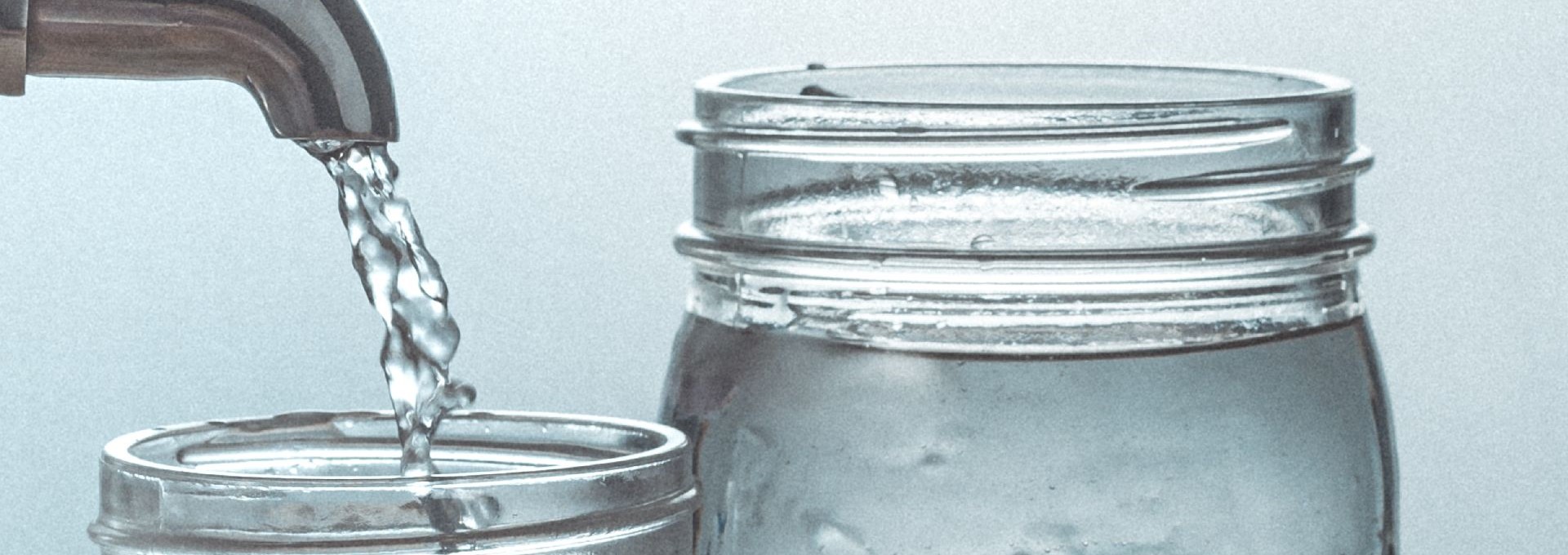The fact that the production of meat requires a lot of water is now known. By contrast, the danger that intensive livestock farming represents for our drinking water is only known to a few people.
Franziska Herren is the initiator of the petition "Healthy clean water for all". She has worked intensively on the topic of contamination in drinking water and is convinced: "The current animal husbandry in agriculture represents a high health risk for humans, animals and plants".
How does pollution happen?
So-called microimpurities in the drinking water come from countless everyday products. Medicines, pesticides, detergents, cosmetics, plastics, etc. get into the water cycle and remain there because the timely upgrade of the treatment plants has been missed. Our drinking water is not routinely tested for micro-pollutants or multiresistant bacteria before it is released for use. In 2009, however, the Federal Office for the Environment (FOEN) commissioned various research projects to analyze micro-pollutants in Swiss waters. The results show that these substances are demonstrably contained in the water, depending on the supply area and origin in larger or smaller quantities.
Multiresistent bacteria
Another problem is the use of antibiotics. Today, 53 tonnes of antibiotics are used in Switzerland each year for animal feed. In comparison, the Swiss population consumes about 10 tonnes of antibiotics per year. The antibiotics from the animal mast are brought to the fields via manure thus also reach the drinking water. This excessive use of antibiotics has been led to the formation of multidrug-resistent bacteria that present a high health risk for humans and animals. More and more often it has become apparent that common antibiotics are ineffective against certain types of bacteria. The Commission for Biosafety (SECF) which was set up by the Federal Council, concluded after a comprehensive investigation: "Antibiotics-resistant bacteria are the greatest biological threat to the health of the Swiss population" 1
Pesticides
Conventional agriculture has a major impact on the quality of our drinking water. In this country almost twice as much pesticides are used as in Austria or in Germany. Three-quarters of the unwanted chemicals in our drinking water come from this excessive use in conventional cultivation. Pesticides can not be filtered out in most sewage treatment plants and remain in drinking water.
Demands of the petition
By upgrading existing wastewater treatment plants, it would now be possible today to filter 80% of micropollutants from wastewater. The federal government plans to upgrade 100 of the total 700 wastewater treatment plants (ARAs) in Switzerland over the next 20 years. As a result, 50% of the wastewater could already be 80% freed from micropollutants. In order to ensure the supply of clean, healthy drinking water in Switzerland, the petition "Healthy clean water for all" demands that the Federal Department of the Environment, Transport, Energy and Communications (DETEC) immediately updates all ARAs in Switzerland and tests the drinking water for micropollutants and multi-drug resistant bacteria before it is released for use.
20% of the micropollutants are substances that can not be degraded or filtered out today (eg X-ray contrast media). Such polluting residues that are neither degradable nor filterable must be captured before they enter the water cycle.
Organic farming
Almost 12% of all Swiss farms are organic farms. Although the trend is upward, the remaining 88% continue to produce conventionally, including large amounts of pesticides and antibiotics. In order to protect the waters, the petition therefore calls for the annual subsidy payments of 3.5 billion francs to be linked with the requirement to operate exclusively organic farming. This could reduce the use of antibiotics to a minimum and pesticides would be banned. The positive effects of a nationwide sustainable production in agricultural could influence consumer behavior. The organic label would be superfluous if healthy foods were (again) the standard with no residues of chemicals and toxins. Anyone who already today decides to live completely without animal products can solve the problem at its root. Because without animal husbandry no antibiotics have to be used.
What can I do?
Franziska Herren recommends that consumers themselves ask their community whether the drinking water has been tested for micropollutants or the presence of multidrug-resistant bacteria. Bacteria can be eliminated, for example by UV light, but not the micropollutants. "Many communities still have no idea what micropollutants are. The demand for drinking water quality in the community helps to make those responsible aware of the problem", Franziska is convinced.
Consumers have it in their own hands, because those who are aware that our most valuable food is provided with water by nature purely and free of charge, pay close attention to their shopping behavior and act with more respect in everyday life: less meat, organic food, biodegradable cleanser and detergent, vegetable and organic cosmetics in the shopping basket keep the water quality high. Even those who are vegetarian or vegan help to protect the drinking water. Even a minimal reduction in meat consumption has an impact on production and thus also on the quantity of antibiotics used. In addition, a predominantly herbal and organic diet with seasonal foods makes a significant contribution to the reduction of CO2 emissions.
Bernadette Raschle
- 1 «Micropollution in our waters» www.bafu.admin.ch/publikationen/publikation/01051
- Pathogens: Much more germs in drinking water than assumed, Beobachter Natur
- Result of agriculture:"There is too much poison in our streams", 4.4.2017, SRF
Polluted water agriculture is responsible for "toxic" streams, 4.4.2017, SRF

